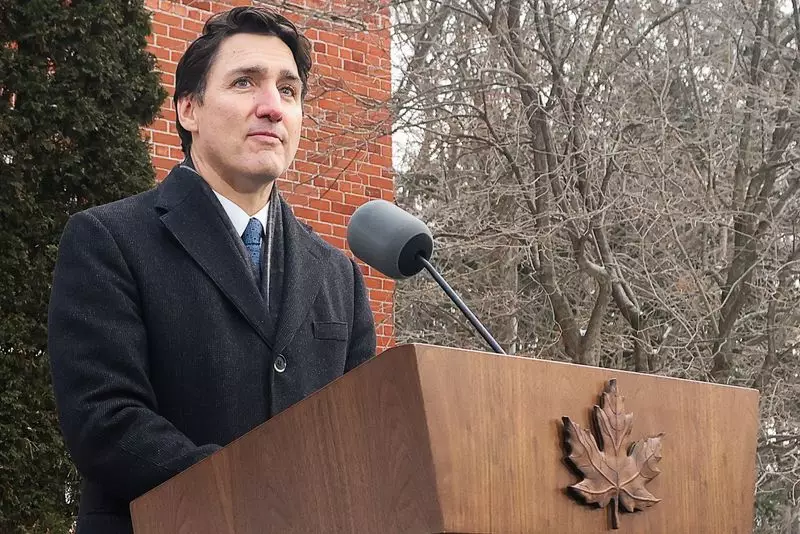The impending threat of U.S. tariffs, particularly a proposed 25% levy on Canadian imports, has placed Prime Minister Justin Trudeau in a precarious position. The ramifications of these tariffs could lead to significant economic repercussions, potentially pushing Canada into a recession. Notably, the United States absorbs 75% of Canada’s exports, which underscores the critical nature of preserving trade relations. In this context, Trudeau’s upcoming cabinet retreat serves as a critical juncture for Canada to evaluate its response and reinforce its national interests.
Scheduled for January 20-21, the cabinet meeting aims to devise strategies that not only protect Canadian interests but also strengthen the long-standing relationship with the U.S. Trudeau’s office emphasized the importance of presenting a united front to both domestic provinces and the international community. The retreat is expected to tackle the diverse concerns among the provinces, which are grappling with the potential fallout of the proposed tariffs. As Trudeau prepares for leadership transition in March, the urgency for cohesive action is more pressing than ever.
Tensions are rising as provincial leaders express dissatisfaction with perceived delays and indecisiveness from Ottawa. Ontario Premier Doug Ford highlighted the critical need for coordinated action, warning that Ontario could face a loss of up to 500,000 jobs if the tariffs are enacted. His frustration reflects a broader sentiment among the provinces; they seek clarity and assertiveness from the federal government in these troubled waters. As the provincial premiers convene with Trudeau, discussions will likely delve into how to maintain unity amid growing concerns of disparate regional responses.
The issue of national unity becomes increasingly delicate as provinces like Alberta and Ontario voice their distinct concerns. Premier Danielle Smith of Alberta has already cautioned against any measures that might restrict energy exports, indicating that such actions could incite a “national unity crisis.” This sentiment underscores the complexities within Canadian politics, where regional interests often clash. The emerging narrative suggests that the federal government must tread carefully to avoid exacerbating tensions among provinces already feeling the strain of economic vulnerability.
With Trump set to be inaugurated on January 20, Canada’s response will also face scrutiny on broader security concerns that the U.S. president has raised regarding the Canada-U.S. border. In anticipation, Canada has already unveiled a substantial border security investment plan worth C$1.3 billion. This initiative, pivoted on enhancing surveillance and intelligence operations, reflects a proactive stance in addressing both economic and security dimensions of the bilateral relationship.
As Canada prepares for a significant cabinet meeting to discuss its strategy against impending U.S. tariffs, the unity of approach among provinces, clarity in leadership, and the safeguarding of trade relationships will be pivotal. Trudeau’s administration faces the dual challenge of responding to external threats while maintaining internal cohesion. The outcomes of this meeting may not only dictate Canada’s immediate economic future but also shape the nature of its relationship with the United States moving forward.

